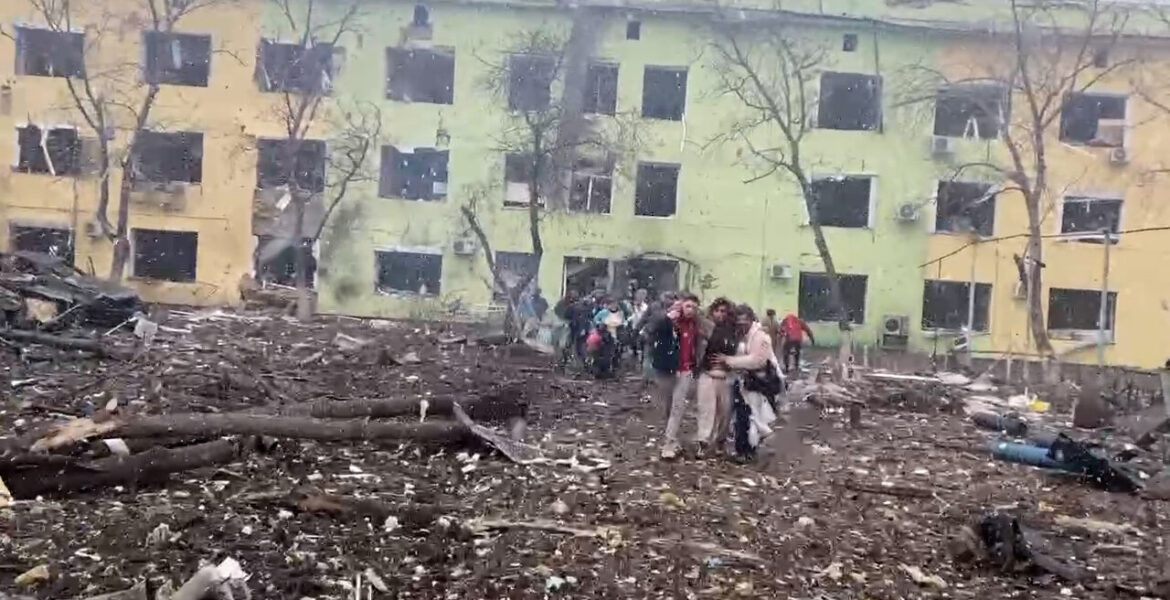Despite Moscow not giving its approval for a joint French-Greek-Turkish humanitarian mission to Mariupol, Greece is still prepared to still send humanitarian aid to port city, said Foreign Ministry spokesperson Alexandros Papaioannou on Wednesday.
He noted that Foreign Minister Nikos Dendias intends to head this humanitarian aid mission to Ukraine if the conditions permit, while explaining that nobody is in position to know when the mission will take place.
Regarding the possibility of Dendias visiting Kiev, Papaioannou made it clear that Ukrainian Foreign Minister Dmytro Kuleba, in a phone call with Dendias the previous week, had stressed that there is an open invitation to visit the Ukrainian capital.
Kuleba also thanked Dendias for his proposal to send humanitarian aid, while underlining that Ukrainian President Volodymyr Zelensky thanked him as well.
With regard to when Dendias' visit to Kiev might take place, the spokesperson said that there was nothing that could be announced at present.
The trilateral humanitarian aid mission to the besieged port city of Mariupol in southern Ukraine was aborted after Russia rejected the initiative.
The office of French President Emmanuel Macron said late on Tuesday that the operation was not possible “at this stage.”
The one-hour-long call ended without a conclusion, his office said. Russian President Vladimir Putin reportedly told Macron that Ukrainian forces fighting in Mariupol would have to surrender before humanitarian aid could be dispatched.
Last week, Macron said that France was ready to lead a humanitarian operation along with Greece and Turkey.
Thousands of civilians may have died in Mariupol since bombing began four weeks ago, the head of the UN human rights mission told Reuters Tuesday.
On Monday, the mayor of Mariupol said that evacuation corridors had come largely under the control of Russian forces, after weeks of bombardment left the city in pieces, killed an unknown number of civilians and forced hundreds of thousands of residents from their homes.
“Not everything is in our power,” said Mayor Vadym Boichenko, in a live television interview, according to CNN. “Unfortunately, we are in the hands of the occupiers today.”
Boichenko called for a complete evacuation of the remaining population of Mariupol, which was home to more than 400,000 people before Russia launched its invasion of Ukraine on February 24.
“According to our estimates, about 160,000 people are in the besieged city of Mariupol today, where it is impossible to live because there is no water, no electricity, no heat, no connection,” he said. “And it’s really scary.”
A pro-Russian separatist leader said on Sunday that about 1,700 Mariupol residents were being “evacuated” daily from the city and its surroundings. Ukrainian officials, however, say thousands were being forcibly “deported” to Russia.
In the four weeks since the Russian invasion of Ukraine, Mariupol has come to symbolise the brutal extremes of the war, with the southern port city facing no running water or electricity and a dwindling supply of food amid the constant threat of missile strikes and shelling.
Many of those who have managed to get out describe harrowing and almost miraculous escapes.
Some grasping organisations are offering rescue missions at a cost of €10,000 (£8,500), but she doesn’t have the money. Much is instead being banked on the likes of Iryna Prudkova, 50, a documentary-maker, who is coordinating a group of volunteers on the ground.
There are no guarantees, however, in the spitting hell of Mariupol. “We asked our volunteer guys to pick them up, but they couldn’t even walk to this basement because of the fighting”, says Prudkova.
The latest figures from the council suggests at least 5,000 people have died during the Russian siege of the city, 210 of whom were children.
READ MORE: EU offices bombed in Mariupol, Borrell blames Russian shelling.

